"Piccadilly Palare" - Morrissey
On Hiding in Plain Sight
Morrissey reveals himself in a chart-topping song about a secret gay language.
What’s that you say?
“Bona to vada your dolly old eke!”
In Polari, it means, “Nice to see your pretty old face.” The secret slang language, also called Palare, was used by gay men until the 1970s. Having sex was illegal in England until 1967, so gay men felt safer speaking Polari to identify each other and talk more openly about their love lives. Men gave each other women’s nicknames, too, so they could speak in code about one another without fear of arrest or brutality. Especially popular with sex workers, Polari was an essential part of British queer culture until homosexuality was decriminalized.
In 1990, Morrissey’s depiction of male sex workers in London’s Piccadilly Square peaked at No. 2 on the American chart, though most listeners had no idea what the song or the “silly slang” meant. For queer fans, it affirmed what they’d suspected since the beginning of Morrissey’s career with The Smiths in 1982. He had written several songs alluding to queerness, but “Piccadilly Palare” was the most overt. For queer people, Morrissey was sending a clear — if still coded — message that he was hiding in plain sight.
On the rack I was
Easy meat, and a reasonably good buy
A reasonably good buy
The Piccadilly Palare
Was just silly slang
Between me and the boys in my gang
"So bona to vada. oh you
Your lovely eek and
Your lovely riah"
We plied an ancient trade
Where we threw all life's
Instructions away
Exchanging lies and digs (my way)
Cause in a belted coat
Oh, I secretly knew
That I hadn't a clue
The Piccadilly Palare
Was just silly slang
Between me and the boys in my gang
Exchanging Palare
You wouldn't understand
Good sons like you
Never do.
The etymology of Polari borrows terms from Italian, Yiddish, and English Cockney slang. It also incorporates slang from the gay subculture. Some words were spoken as if spelled backward - “riah” meaning “hair” and “ecafe” meaning “face,” although it was eventually shortened to “eke.” Many Polari words are still used today, including:
drag - clothing/outfit
queen - a gay man
camp - effeminate, outrageous etc
bevvy - drink
blow(job) - to give oral sex
Lancaster University created a more complete list of Polari terms that aren’t used as often in modern slang:
ajax - next to
vada - to look/to see
bona - good
cod - awful
cottage - public toilet used for sex
trade - a gay sex partner
dish - anus/bum
dolly - pretty
eek - face
feely - young
lattie - house
naff - awful, tasteless
nanti - none, no, nothing, don't, beware
omi - man
palone - woman
omi-palone - gay man
Palone-omi - lesbian
riah - hair
send up - to make fun of
The Dilly - Piccadilly Circus, a popular hang-out for male prostitutes in London
Polari was popularized in the early 19th century by traveling circus performers and found its way to theaters. The word “drag” is said to have originated by male theater actors who portrayed women in plays and had to wear long gowns that “dragged” across the floor. Polari was also widely spoken within the Merchant Navy. Many gay men joined “The Merch” to escape their oppressive lives at home and served as entertainment, putting on drag shows for other sailors. In between deployments, sailors would make money as “rent boys” on the fringes of Soho at Piccadilly Circus, which became a popular spot for male prostitution and was written about by authors such as Oscar Wilde. Sex workers would gather near the monumental statue of Eros, the Greek God of carnal love, and “ply their trade.”
The BBC sketch comedy radio program, Round the Horne, introduced Polari to mainstream audiences in 1965. Then the slang fell out of fashion and was considered by many to be antiquated and unnecessary with the partial decriminalization of homosexuality in 1967. Remnants of the language could be found in popular culture throughout the ‘70s. Rough Trade - the London clothing store turned indie record label that signed Morrissey and The Smiths, gets its name from the ashes of Polari slang. “Rough trade” was Polari for a blue-collar, often brutish gay sex partner.
Polari was re-popularized in the late 1980s when queer political activists dressed as nuns calling themselves the Sisters of Perpetual Indulgence began using Polari in their demonstrations and charitable work. Interest in the forgotten language blossomed again.
“Piccadilly Palare” was released as a single on Morrissey’s 1990 compilation album, Bona Drag — which means “nice outfit” in Polari. In an interview with Nick Kent of The Face magazine, Morrissey explained, “The song is about male prostitution in Piccadilly… In the north, among people I knew, there was something oddly romantic about the whole thing. It spelt freedom."
“Piccadilly Palare” wasn’t the first song Morrissey wrote alluding to his queerness. With The Smiths, he wrote songs like “These Things Take Time,” about a queer kid falling for a closeted man. In it, he decries “I’m spellbound but a woman divides and the hills are alive with celebate cries.” Listen more carefully to lyrics of songs like “Paint a Vulgar Picture” and “I Want the One I Can’t Have,” and you’ll see that Morrissey has been dropping hints from the very beginning. And let’s not forget the album covers:
Though the clues had always been there, Morrissey was taking a more overt approach about his sexuality in 1990. Bona Drag may be Morrissey’s best — and gayest — album to date. Not only is the album and lead single named after a secret gay language, but also Morrissey alludes to his attraction to men in Bona Drag’s other top single, “The Last of the Famous International Playboys,” where he takes on the persona of an obsessive serial killer trying to attract the attention of the notorious British gangsters, the Kray brothers. Ronnie Kray was openly gay, and in the song, Morrissey pleads, “such things I do just to make myself more attractive to you.” Arguments could also be made for the songs “Lucky Lisp” and “Will Never Marry.”
Though Morrissey officially came out as “humasexual” in his 2013 autobiography, he admitted to being attracted to men in that same 1990 interview with Nick Kent after talking about the meaning behind “Piccadilly Palare.”
Kent: You write a lot about the homosexual experience.
Morrissey: "Well... not a lot."
Kent: OK, you write a lot about homosexual 'longing.'
Morrissey: "I've always said I leave things very open and that I sing about people. Without limitation. And I don't think that automatically makes me a homosexual."
Kent: You've always taken offense at that word...
Morrissey: "Because it's... limiting and restrictive."
Kent: Do you feel more able to sexually project yourself now?
Morrissey: "Oh yes I do. Throughout The Smiths' career I was entirely crippled. I was bound to a wheelchair, I have no doubt about that. And then suddenly one day I woke up and it was gone and I felt, 'My God!' It was quite recently, just over a year ago. I mean, I suppose 'manhood' comes to everybody eventually (bursts out laughing). Maybe I flatter myself."
Kent: What about sexual... relationships?
Morrissey: "I don't have relationships at all. It's out of the question."
Kent: Why?
Morrissey: "Partly because I was always attracted to men or women who were never attracted to me. And I was never attracted to women or men who were attracted to me. So that's the problem. I've never met the right person."
For queer fans, “Piccadilly Palare” and the rest of Bona Drag felt like a shared secret, like a gift to a lover hidden in plain sight. “Bona to vada Morrissey.”
*Editor’s Note: It should be mentioned that Morrissey has become an awful human being. Never let your heroes grow old. If we separate the man he’s become now from the music forged during our formative years, the songs saved actual lives. That legacy is what we’re honoring here.
For an example of a conversation in Polari, watch this short film made in 2015.
Check out our article on “These Things Take Time” by The Smiths:



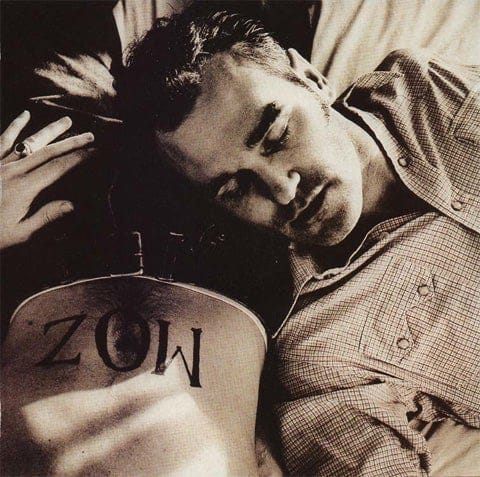
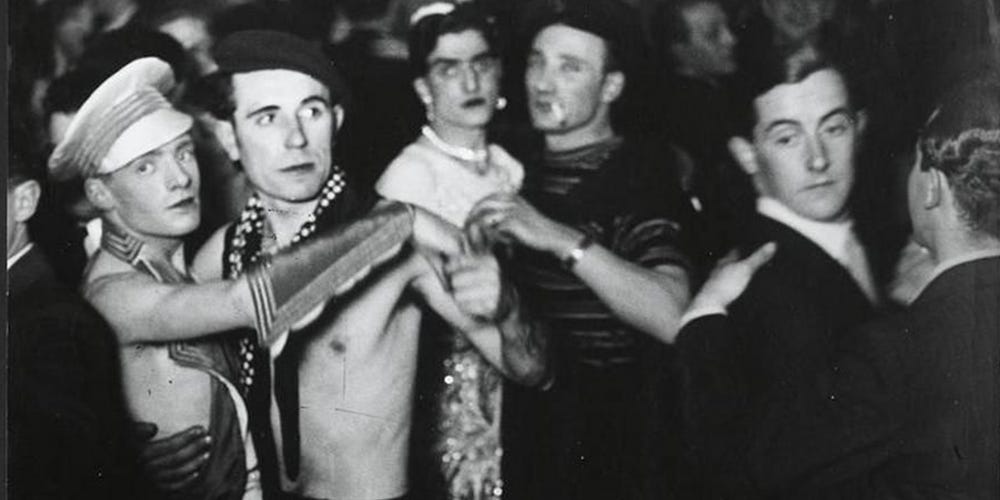
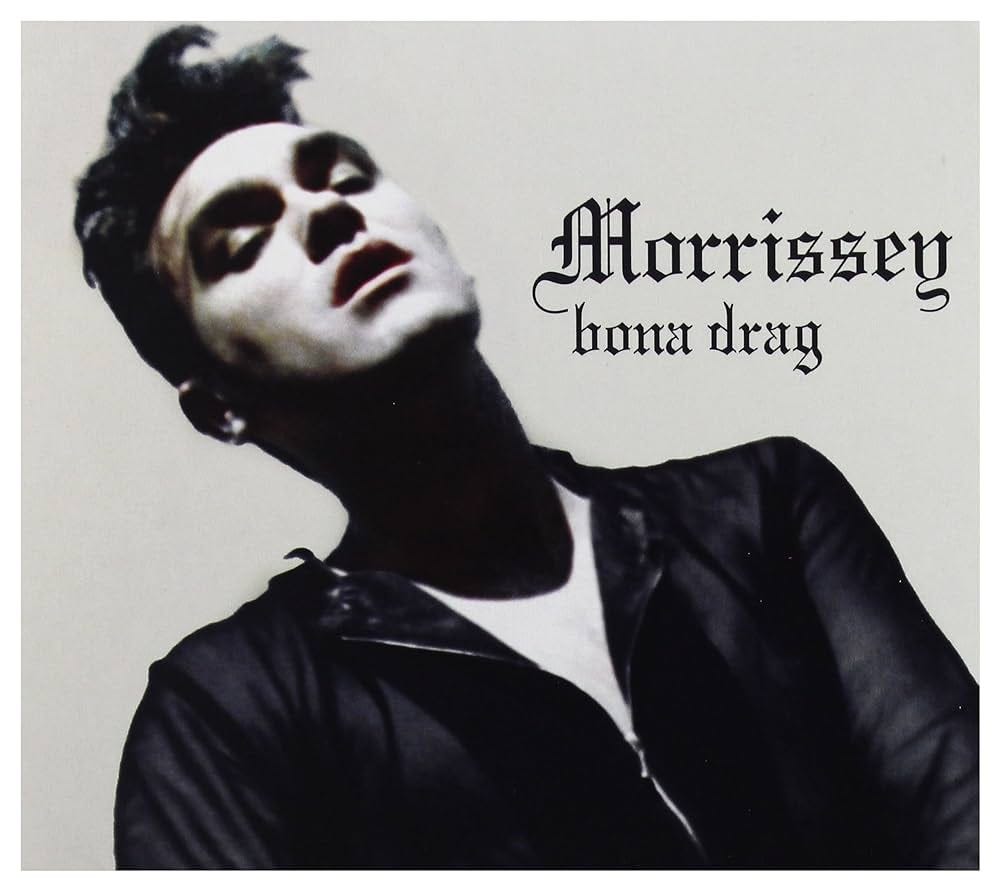
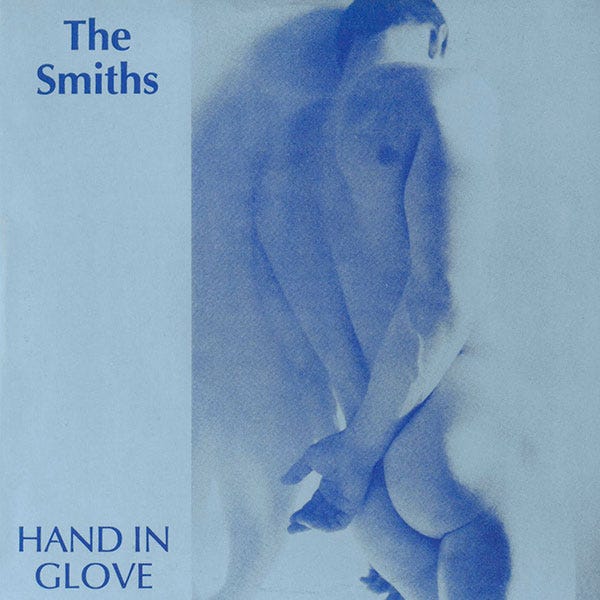

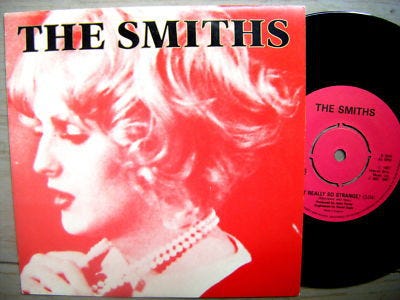
Polari has literally been hiding in plain sight and I didn't know it. Thanks for enriching my understanding of the origin of these slang terms.
I had. No. Idea. Thanks for this!